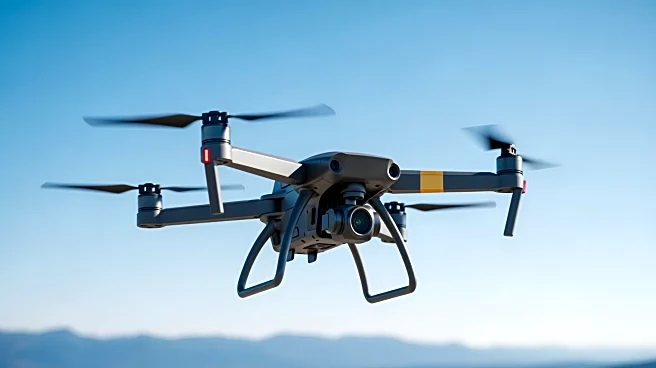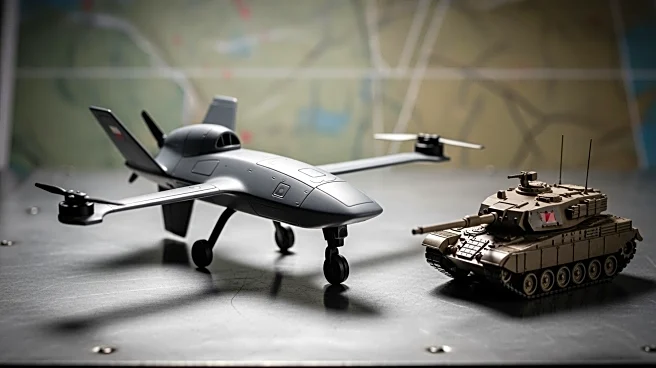What's Happening?
The Holy Stone HS600D drone has been reviewed, showcasing its upgraded performance and features compared to its predecessor. The drone is equipped with a 48MP Sony CMOS sensor, capable of capturing 4K
video at 30 FPS, and offers a flight time of up to 40 minutes with its 3500 mAh LiPo battery. Despite its capabilities, the HS600D faces stiff competition in the beginner drone market, priced at $400. It includes features such as GPS positioning, Return to Home, and various creative shooting modes like timelapse and panorama. The drone's design includes a folding mechanism for compact storage and a 3-axis gimbal for video stabilization.
Why It's Important?
The Holy Stone HS600D represents a significant offering in the beginner drone market, providing advanced features at a competitive price point. Its ability to capture high-resolution images and videos makes it appealing to hobbyists and amateur photographers. However, the drone's automatic camera settings and mixed image quality may limit its use for professional applications. The inclusion of GPS and safety features like Remote ID compliance with FAA regulations is crucial for U.S. users, ensuring safe and legal operation. The drone's performance and features could influence consumer choices in a market dominated by established brands like DJI.
What's Next?
Potential buyers of the Holy Stone HS600D may consider its features against competitors like the DJI Mini 3 and Mini 4K, which offer similar capabilities. As drone technology continues to evolve, manufacturers may focus on improving camera quality and flight precision to meet consumer demands. The HS600D's performance in various conditions, such as colder climates affecting battery life, could lead to further product enhancements. Users may also anticipate updates or new models from Holy Stone that address current limitations and expand creative possibilities.
Beyond the Headlines
The Holy Stone HS600D's entry into the market highlights the growing accessibility of drone technology for beginners. As drones become more integrated into recreational and professional activities, ethical considerations regarding privacy and airspace regulations will continue to be important. The drone's compliance with FAA regulations underscores the importance of adhering to legal standards, which could influence future product designs and consumer education.









